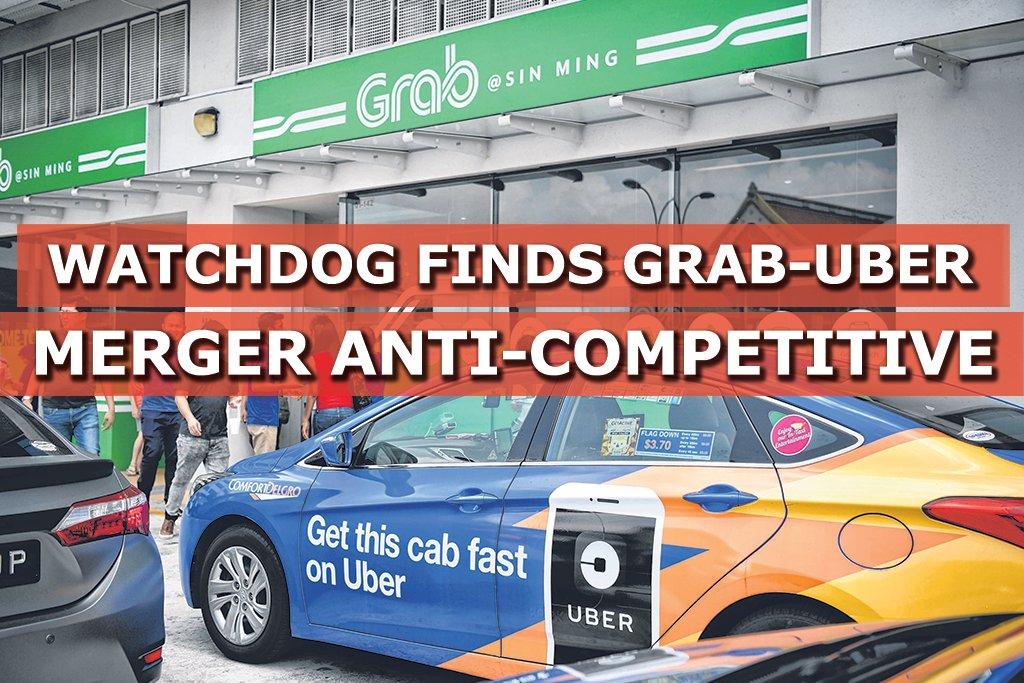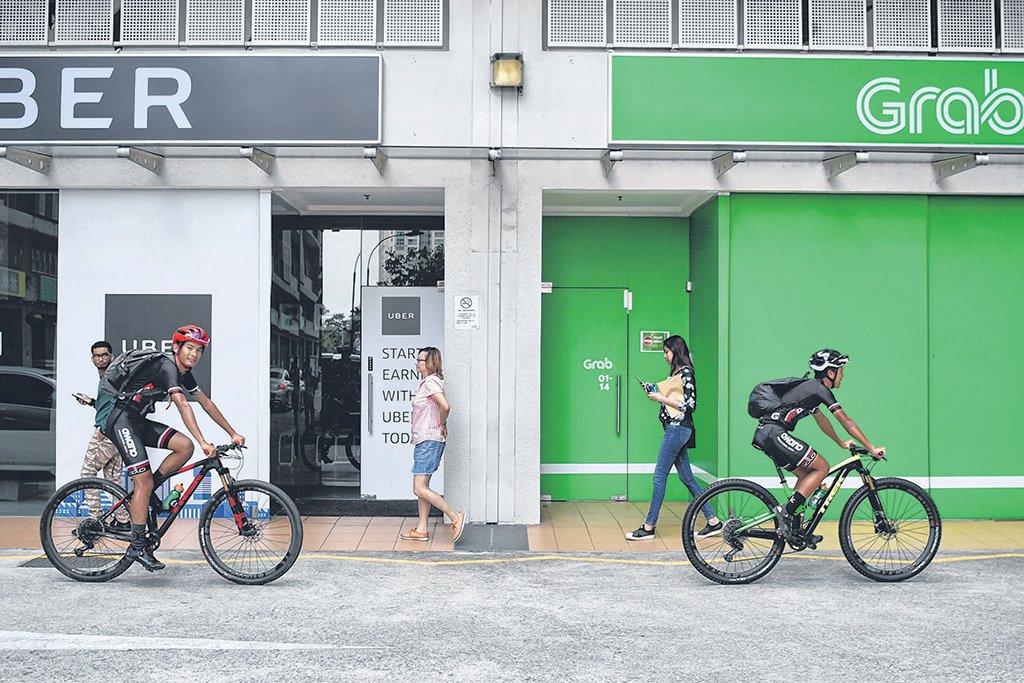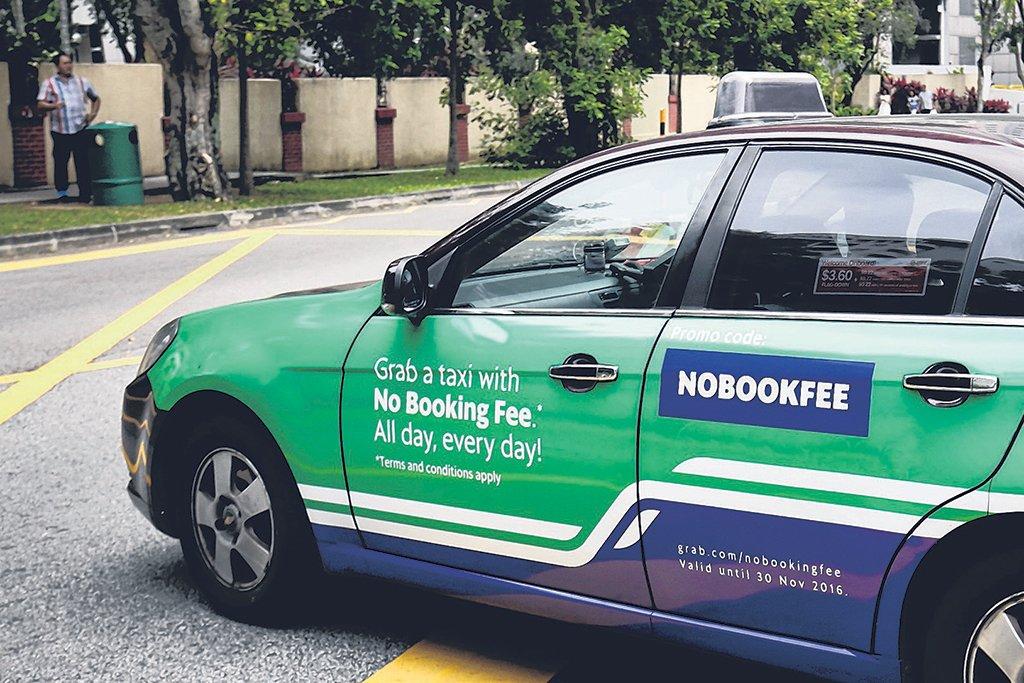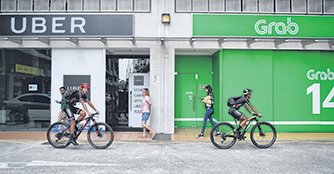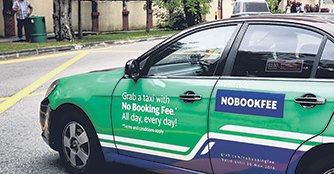Watchdog finds that Grab-Uber deal breaches competition laws
06 Jul 2018|858 views
After more than three months of deliberation, the Competition and Consumer Commission of Singapore (CCCS) has determined that ride-hailing firm Grab's acquisition of American rival Uber's South-east Asian business is an infringement of competition laws. It proposes to impose fines on both players.
In a statement released yesterday, the CCCS said it had 'provisionally' found that the deal led to a substantial lessening of competition in the sector here. It has also issued a proposed infringement decision against the transaction.
In its strongest pronouncement on the deal so far, the CCCS said Grab and Uber had proceeded with the transaction despite knowing that it might breach competition laws. It noted that both turned down an offer from the commission 17 days before the deal was completed to take 'confidential advice' on it. Instead, they went ahead 'despite their own view that the outcome would be irreversible, thus rendering it practically impossible to restore the status quo'.
The CCCS also found that both had even agreed to split any anti-trust financial penalty. In its findings, the CCCS said that cab-booking services do not offer enough competition as they account for less than 15 percent of the ride-hailing market. It added that barriers to entry for newcomers are 'high'.
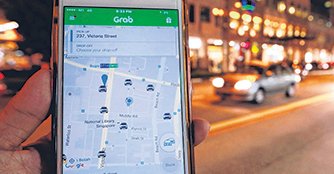
To counter this, the CCCS proposed getting Grab to remove exclusivity clauses for all its drivers, undo exclusivity deals with fleet operators, and revert to the pricing algorithm and driver commission rates in force before the acquisition. It also proposed to impose financial penalties on the two companies, but did not spell out the quantums.
Grab said it disagrees with the CCCS' assessment. "The CCCS appears to have taken a very narrow approach in defining competition," its spokesman said. "While we are one of the most visible players in transport, we are not the only player in the market. CCCS has not taken into account the dynamic developments and intense competition going on over the past few months."
Grab asserts that it had 'proactively engaged with the CCCS' before the deal was signed. "We conducted the acquisition legally and in full compliance with Singapore's applicable competition laws," the spokesman added. She said the CCCS' proposed measures 'go against Singapore's pro-innovation and pro-business regulations in a free market economy'.
Singapore University of Social Sciences senior lecturer and transport economist Walter Theseira said the CCCS' measures will not lead to a significant increase in competition 'without the entry of a well-financed competitor'. "The difficulty that small start-ups such as Ryde have had will not go away simply because exclusivity arrangements are removed from Grab drivers," he said. "The majority of drivers will still find it in their interest to take most of their bookings through the dominant player."
TSMP Law Joint Managing Partner Thio Shen Yi said the CCCS' measures look reasonable, but he is unsure how sustainable measures on pricing would be. "As for unwinding the transaction, given that Uber has exited the market, we can't return to the original position," he said. "So, my guess is that a financial penalty would have to be seriously considered."
Dr. Lee Der-Horng, Director of the NUS-LTA Transport Research Centre, described the CCCS' verdict as 'ill-rooted'. "Providing incentives to either passengers or drivers should not be considered a norm in the private-hire business," he said. As for Uber exiting, Dr. Lee asked, "Should a less-competitive business be 'protected'?"
After more than three months of deliberation, the Competition and Consumer Commission of Singapore (CCCS) has determined that ride-hailing firm Grab's acquisition of American rival Uber's South-east Asian business is an infringement of competition laws. It proposes to impose fines on both players.
In a statement released yesterday, the CCCS said it had 'provisionally' found that the deal led to a substantial lessening of competition in the sector here. It has also issued a proposed infringement decision against the transaction.
In its strongest pronouncement on the deal so far, the CCCS said Grab and Uber had proceeded with the transaction despite knowing that it might breach competition laws. It noted that both turned down an offer from the commission 17 days before the deal was completed to take 'confidential advice' on it. Instead, they went ahead 'despite their own view that the outcome would be irreversible, thus rendering it practically impossible to restore the status quo'.
The CCCS also found that both had even agreed to split any anti-trust financial penalty. In its findings, the CCCS said that cab-booking services do not offer enough competition as they account for less than 15 percent of the ride-hailing market. It added that barriers to entry for newcomers are 'high'.

To counter this, the CCCS proposed getting Grab to remove exclusivity clauses for all its drivers, undo exclusivity deals with fleet operators, and revert to the pricing algorithm and driver commission rates in force before the acquisition. It also proposed to impose financial penalties on the two companies, but did not spell out the quantums.
Grab said it disagrees with the CCCS' assessment. "The CCCS appears to have taken a very narrow approach in defining competition," its spokesman said. "While we are one of the most visible players in transport, we are not the only player in the market. CCCS has not taken into account the dynamic developments and intense competition going on over the past few months."
Grab asserts that it had 'proactively engaged with the CCCS' before the deal was signed. "We conducted the acquisition legally and in full compliance with Singapore's applicable competition laws," the spokesman added. She said the CCCS' proposed measures 'go against Singapore's pro-innovation and pro-business regulations in a free market economy'.
Singapore University of Social Sciences senior lecturer and transport economist Walter Theseira said the CCCS' measures will not lead to a significant increase in competition 'without the entry of a well-financed competitor'. "The difficulty that small start-ups such as Ryde have had will not go away simply because exclusivity arrangements are removed from Grab drivers," he said. "The majority of drivers will still find it in their interest to take most of their bookings through the dominant player."
TSMP Law Joint Managing Partner Thio Shen Yi said the CCCS' measures look reasonable, but he is unsure how sustainable measures on pricing would be. "As for unwinding the transaction, given that Uber has exited the market, we can't return to the original position," he said. "So, my guess is that a financial penalty would have to be seriously considered."
Dr. Lee Der-Horng, Director of the NUS-LTA Transport Research Centre, described the CCCS' verdict as 'ill-rooted'. "Providing incentives to either passengers or drivers should not be considered a norm in the private-hire business," he said. As for Uber exiting, Dr. Lee asked, "Should a less-competitive business be 'protected'?"
Latest COE Prices
September 2025 | 2nd BIDDING
NEXT TENDER: 08 Oct 2025
CAT A$119,003
CAT B$136,890
CAT C$72,501
CAT E$140,502
View Full Results Thank You For Your Subscription.
